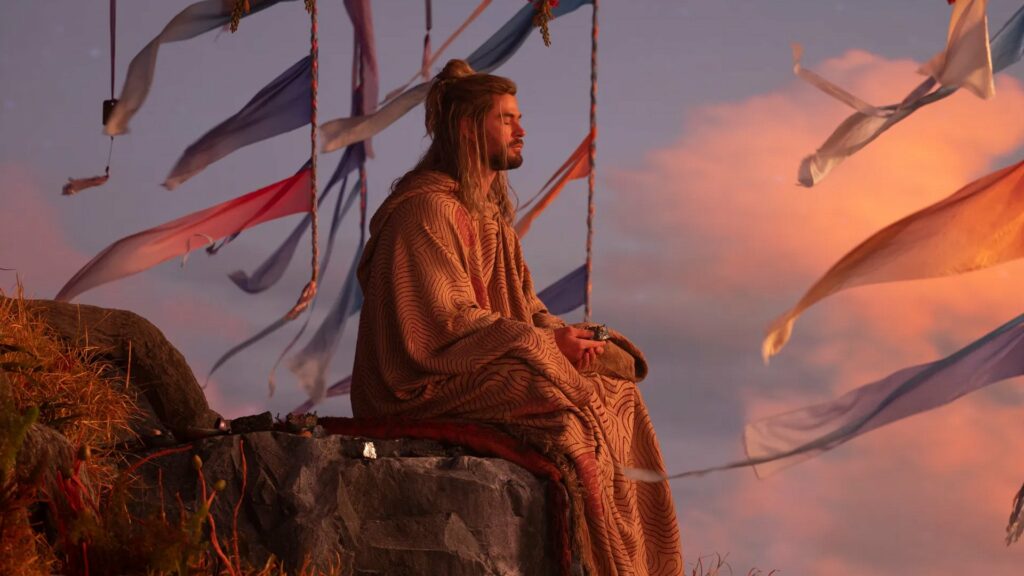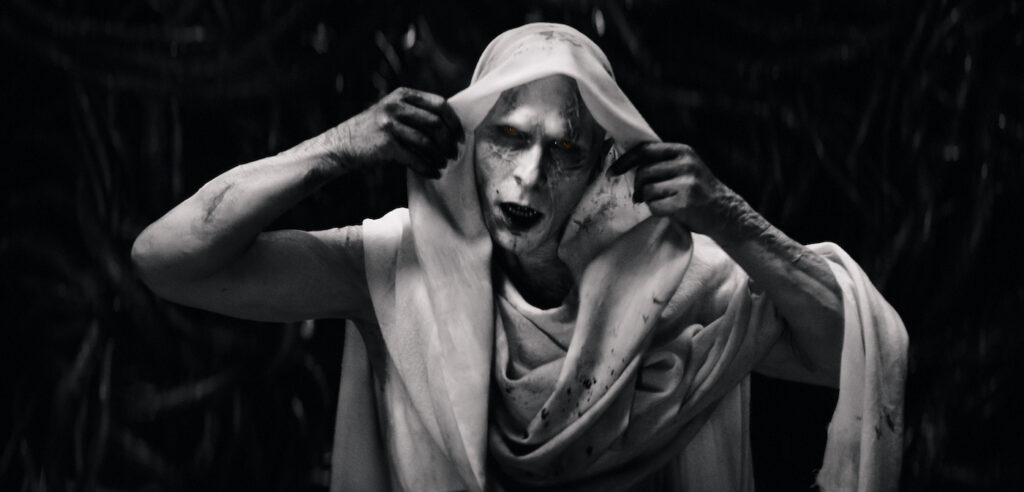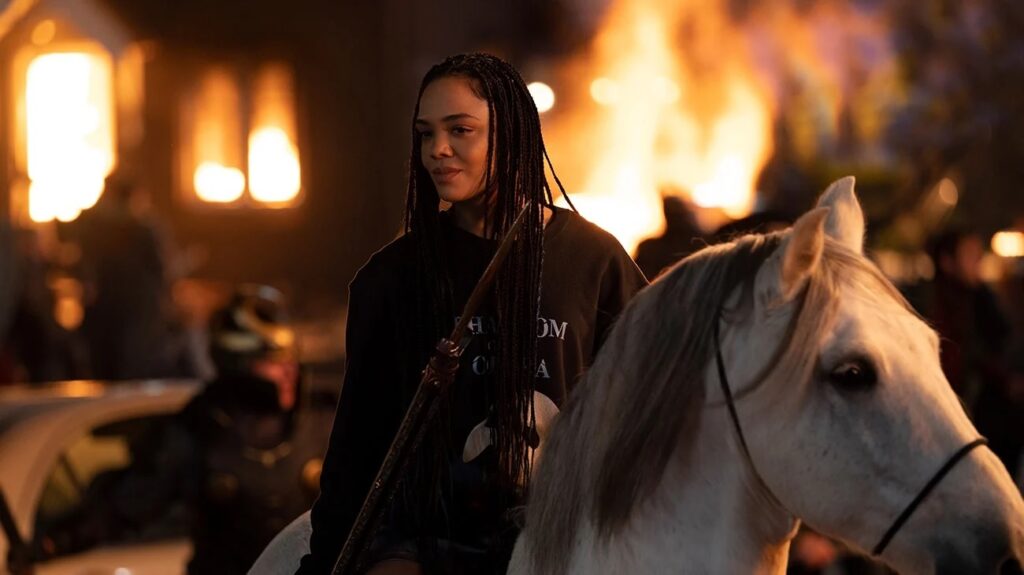Taika Waititi’s mission to draw Thor away from the greyed veils of high fantasy started with the zany, absurd Thor: Ragnarok and continues with Thor: Love and Thunder, taking what was best about the last film and turning it up to eleven. With more heartache and drama than any Thor film to date, this is vintage Waititi and a welcome return to form for phase four of the Marvel Cinematic Universe (MCU).
Dealing with a midlife crisis, Thor (Chris Hemsworth) is pulled away from his swashbuckling adventures with the Guardians of the Galaxy by the threat of Gorr the God Butcher (Christian Bale). He returns to New Asgard to see off this threat, only to face something that throws him off even more – his ex-flame Jane Foster (a jacked-up Natalie Portman) who wields a repaired Mjölnir and goes by the name of The Mighty Thor. The two haven’t seen one another in over eight years and have some catching up to do while they, Valkyrie (Tessa Thompson), and Korg (Waititi) attempt to see off this new danger.

More tonally coherent than Ragnarok, Love and Thunder makes some brave decisions – after all, not many other rip-roaring summer blockbusters begin with the onscreen death of a child. Every funny quip and moment of slapstick is balanced with equally important, quieter moments of contemplation or sadness. They don’t gel as well as in Hunt for the Wilderpeople – still the bona fide Waititi film – but the film is nonetheless impressive, helped by the inspired decision to install Korg as a semi-narrator. The film’s message is that it is better to experience love, heartache and sadness than not experience anything at all, a truth explored with laughter and loss in equal measure.
The headline act is undoubtedly MCU returnee Portman, immediately being given a greater role than she’d previously enjoyed. Both Jane and Thor (who at times look like they are at a couples costume party) are processing personal struggles unlike anything they have experienced before, struggles which slowly bring the two back together. Hemsworth meanwhile has come a long way in his decade of heroics, physically stronger than ever but coupling this strength with an emotiveness that is at once comforting and entertaining. Their dynamic sets the scene for some of the film’s most moving moments, Waititi exploring their tumultuous and passionate history with remarkable tenderness.

Meanwhile, rather than feeling like a sideshow to Thor’s quest for self-discovery, Gorr is instead a dark reflection of the titular hero. Both are seeking meaning and purpose in a universe that has ripped it all away from them, and where the powers that be cannot be trusted to reward undying faith. Bale’s performance is erratic, feeling genuinely terrifying at times and more like a pantomime villain at others. Still, Gorr is saved by one of the most understated, powerful endings for any Marvel villain – one that links directly to the film’s title.
It isn’t all heartbreak, however. Love and Thunder features some stellar action sequences, from the initial Van Damme-esque battle against some owl people to a striking Shadow Realm showdown captured through a monochrome filter with flashes of colour. Throughout the film, Waititi proves that the MCU still has room for visual inventiveness, helped massively by the evident refusal to end the film with one of the franchise’s usual overstuffed CGI smorgasbord.

If the film has just one weakness, it’s Russell Crowe. Hamming it up as Zeus, complete with a strangely cheap-looking costume and a very peculiar accent, his entire presence is a disappointment. Crowe has proved in The Nice Guys that he can do comedy and play to his strengths as an actor; it is both a shame and a distraction that he cannot do the same here. In fact, the whole trip to the Omnipotent City – home of the gods – is overdrawn, if not entirely pointless.
Thor: Love and Thunder comes up short in some other areas as well. The soundtrack, while banging, lacks variation, and Valkyrie feels a little sidelined compared to the tribulations of the leading pair of Thors. Even so, this is easily one of the MCU’s best entries in its (to date) patchy phase four and the best entry of the Thor mini-verse, not to mention a film that lets Waititi fully play to his strengths. You will cry for every which reason, feeling entertained and nourished in equal measure. It sounds corny, but Love and Thunder really is a reminder of how important it is to feel something, whatever that feeling may be.
Thor: Love and Thunder is out in cinemas now.
